#Boucicault
Text
Sometimes so slutty hottie feels overweight cock in mouth and ass
Chichona mexicana jugando
Liya Silver [PRIVATE] Babe NewPorn
Exotic masseuse Kina Kai gives nuru massage
Lusty joy for horny teacher in order to pass the exams
Nurse seduce teen at school
The lucky guys spitroast Jasmine Grey and pound her from every angle as she cums over and over again
Ava Rose Sucks off a Young Guy
Man tall xxx sex hot video and euro nice young gay boy movie Max
Tbabe Jessy Dubai teasing and vicious masturbation
#clake#authorization#antipsychotic#caulocarpic#obscurantists#almoning#pregladness#rank-feeding#ousels#trustifying#Boucicault#Dutton#animelove#hummingbirds#fingers#aequor#Gascony#Trentepohliaceae#gerfalcon#dwelt
0 notes
Text

Dorothy Gish with flowers in The Streets of New York, or Poverty is No Crime, by Dion Boucicault, opened October 6, 1931 at the 46th St. Theater (now the Richard Rodgers) and closed in December after 87 performances. Fania Marinoff was also in the cast.
Photo: Conde Nast Store
#vintage New York#1930s#Dorothy Gish#vintage Broadway#Dion Boucicault#Oct. 6#Gish sisters#6 Oct.#October 6#theater#6 October#Streets of New York#vintage theater
38 notes
·
View notes
Text

"Men talk of killing time, while time quietly kills them. " - Dion Boucicault
#dark academia#academia aesthetic#romantic academia#chaotic academia#dark academia aesthetic#light academia#england#medieval#ancient#ancient text#secret history#romantic#secret passages#candle lit#old money#marble#statue#literature#old texts#ancient wisdom#quotes#academia#academic
193 notes
·
View notes
Text
went to look up the origin of 'going to see a man about a dog' and the playright who appears to have either coined or popularized it has an absolutely exquisite name: Dionysius Lardner "Dion" Boucicault
12 notes
·
View notes
Text

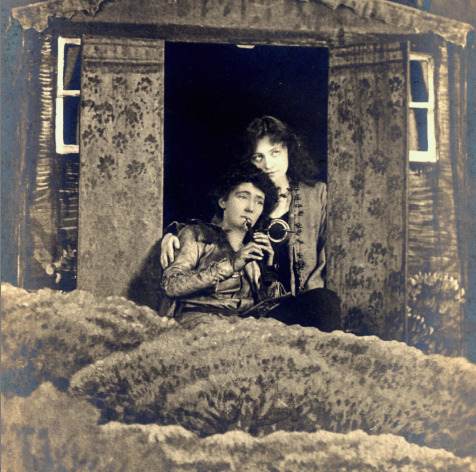
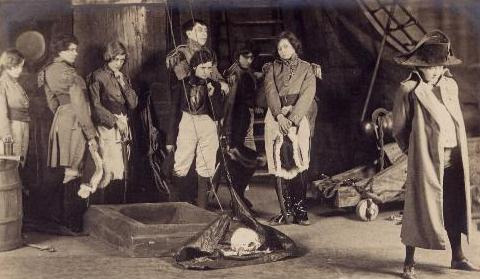
The original stage production of Peter Pan took place at the Duke of York Theatre, London, on 27 December 1904.
It starred Gerald du Maurier as Captain Hook (doubling up as Mr Darling) and Mr Darling, and Nina Boucicault as Peter.
Following the success of his London production, Barrie's producer, Charles Frohman, took it to Broadway in New York in 1905 where Maude Adams took on the role for over ten years.
It was still traditional in the early 20th century for the part of young boys to be played by a woman although the tradition is gradually being lost, with male actors being cast as Peter Pan in modern productions.
Tinker Bell was represented by a darting light and voiced by bells - although "Jane Wren" was listed in the original productions as the actress playing Tink. This was a joke which fooled HM Inspector of Taxes who sent Miss Jane Wren a tax demand!
Fairy dust enabling you to fly was introduced later, to deter children from trying to fly from their beds or even windows, following reports of accidents!
The script was constantly rewritten, amended and added to by Barrie until it was published in 1928 in its final form, years after the novelised version Peter and Wendy (1911).
But the directions to Neverland have never changed:
Seconnd star to the right and straight on till morning.
Peter Pan continues to play at theatres all over the world to this day, there are also numerous film versions in different guises.
Pics are from the original production, more details of which can be found here https://secondtotherightblog.wordpress.com/2015/10/08/peter-pan-a-history-first-production/
20 notes
·
View notes
Text
“For at least fifty years after Planché’s Vampire, the moon was the central ingredient of vampire iconography; vampires’ solitary and repetitive lives consisted of incessant deaths and—when the moon shone down on them—quivering rebirths. Planché’s Ruthven, Rymer’s Varney, and Boucicault’s Alan Raby need marriage and blood to replenish their vitality, but they turn for renewed life to the moon. Like the moon, they live cyclically, dying and renewing themselves with ritual, predictable regularity. A corpse quivering to life under the moon’s rays is the central image of midcentury vampire literature; fangs, penetration, sucking, and staking are peripheral to its lunar obsession.”
From Our Vampires, Ourselves by Nina Auerbach
#this book is very neat#vanitas no carte#the case study of vanitas#vanitas#the vampire of the blue moon#les memoires de vanitas#add this to why i think noé is telling half the truth#i say this bc Mochijun's Lord Ruthven is a LITERAL copy paste from The Vampyr by Polidori#and in that book Ruthven is revived by moonlight#(also sidenote polidori wrote that book to say fuck you the Byron)
11 notes
·
View notes
Note
Marshal Boucicault medieval horror series where he's the straight man/Agent Scully around everything crazy in the world and he's just trying to do his damn job while everyone else is being haunted or going mad or summoning demons.
Yes!
Or: Bertrand du Guesclin and Tiphaine Raguenel as medieval X-files investigators, with Tiphaine being the one with all the lore/research/solving the riddles and Bertrand being the one trying to punch the ghost/demon/shapeshifter.
6 notes
·
View notes
Text
A To Z Challenge- Quotes about time – M
This year my theme is; Quotes about time! Why time? You may ask! I think that time is the most precious commodity we have but we often don’t value it and waste it. “Men talk of killing time, while it’s time that quietly kills them” Dion Boucicault I don’t think I need to write much […]
A To Z Challenge- Quotes about time – M

View On WordPress
0 notes
Text
On this day in Wikipedia: Tuesday, 26th December
Welcome, καλωσόρισμα (kalosórisma), добродошли (dobrodošli), bienvenido 🤗
What does @Wikipedia say about 26th December through the years 🏛️📜🗓️?

26th December 2021 🗓️ : Death - Desmond Tutu
Desmond Tutu, South African Anglican bishop, theologian and anti-apartheid and human rights activist (b. 1931)
"Desmond Mpilo Tutu (7 October 1931 – 26 December 2021) was a South African Anglican bishop and theologian, known for his work as an anti-apartheid and human rights activist. He was Bishop of Johannesburg from 1985 to 1986 and then Archbishop of Cape Town from 1986 to 1996, in both cases being the..."

Image by Benny Gool
26th December 2017 🗓️ : Death - Irv Weinstein
Irv Weinstein, American broadcaster and television news anchor (b. 1930)
"Irwin B. "Irv" Weinstein (April 29, 1930 – December 26, 2017) was an American local television news anchor and occasional radio actor. He hosted WKBW-TV's Eyewitness News in Buffalo, New York, for 34 years, from 1964 to 1998, becoming an iconic broadcaster well known in both the Buffalo area and in..."
26th December 2013 🗓️ : Death - Marta Eggerth
Marta Eggerth, Hungarian-American actress and singer (b. 1912)
"Marta Eggerth (17 April 1912 – 26 December 2013) was a Hungarian actress and singer from "The Silver Age of Operetta". Many of the 20th century's most famous operetta composers, including Franz Lehár, Fritz Kreisler, Robert Stolz, Oscar Straus, and Paul Abraham, composed works especially for her...."
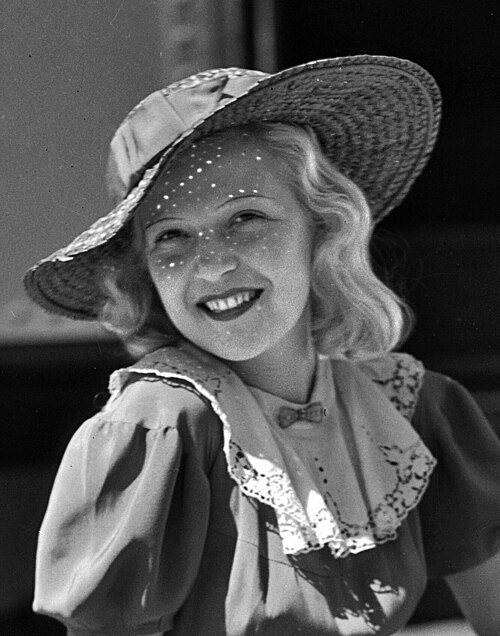
Image licensed under CC BY 4.0? by Los Angeles Times
26th December 1973 🗓️ : Birth - Steve Prescott
Steve Prescott, English rugby player (d. 2013)
"Stephen Prescott (26 December 1973 – 9 November 2013) was a professional rugby league footballer who played as a fullback in the 1990s and 2000s. Prescott made his début for St Helens in 1993, and soon established himself as the club's first choice fullback. He made his senior international début..."

Image licensed under CC BY-SA 3.0? by Mortonstalker
26th December 1923 🗓️ : Birth - Richard Artschwager
Richard Artschwager, American painter, illustrator, and sculptor (d. 2013)
"Richard Ernst Artschwager (December 26, 1923 – February 9, 2013) was an American painter, illustrator and sculptor. His work has associations with Pop Art, Conceptual art and Minimalism...."
26th December 1820 🗓️ : Birth - Dion Boucicault
Dion Boucicault, Irish actor and playwright (d. 1890)
"Dionysius Lardner "Dion" Boucicault (né Boursiquot; 26 December 1820 – 18 September 1890) was an Irish actor and playwright famed for his melodramas. By the later part of the 19th century, Boucicault had become known on both sides of the Atlantic as one of the most successful..."

Image
26th December 🗓️ : Holiday - Christian feast day: Saint Stephen (Western Church)
"Stephen (Hebrew: סטפנוס, Greek: Στέφανος Stéphanos, meaning 'wreath or crown' and by extension 'reward, honor, renown, fame', often given as a title rather than as a name; c. 5 – c. 34 AD) is traditionally venerated as the protomartyr or first martyr of Christianity. According to the Acts of the..."

Image by Carlo Crivelli
0 notes
Text
Although Lord Alan Raby is even more well titled than Sir Francis Varney (or Count Dracula later on), Puritan vampires embody not only entrenched social parasitism, but also the revolutionary self-sufficiency, the integrity of will, the repudiation of aristocratic privilege, that England’s sole revolution championed. They don’t plunge into British history from some other realm: they inhabit it, simultaneously privileged and protesting. They resurrect in the 1840s the 1640s that spawned them, releasing incendiary memories in a decade whose inherited authority was undermined by expanded suffrage, a newly organized working class, the unprecedented economic and political vulnerability of the landed aristocracy. Dion Boucicault’s melodrama learns from Varney that history is more frightening than the spirit world.
Nina Auerbach, from Our Vampires, Ourselves
1 note
·
View note
Text
James A. Herne: "The American Ibsen"
Time was, all American theatre-goers knew the name of James A. Herne (James Ahearn, 1839-1901), not just a few scholars.
Herne ranks with figures like Dion Boucicault and Steele MacKaye in the ranks of America’s top pre-O’Neill playwrights. After O’Neill, theatre people tended to sneer at these earlier figures but in recent decades their reputations have been partially restored if only for the…
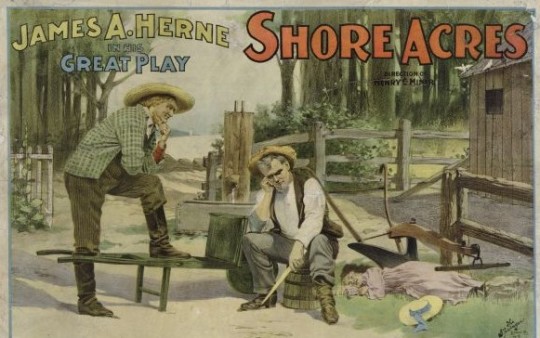
View On WordPress
#actor#Broadway#Chrystal Herne#Hearts of oak#James A. Herne#Julia Herne#Julie Herne#Margaret Fleming#playwright#screenwriter#stage#theatre
1 note
·
View note
Link
0 notes
Text
Men talk of killing time, while time quietly kills them.
Dion Boucicault
0 notes
Text
The iPod is dead. Long live the iPod.
The iPod is dead. Long live the iPod.
Photo by Aegon Boucicault on Unsplash
Apple has decided to discontinue the iPod Touch. The last iPod. My first touchscreen Apple device (as I waited for the first-generation iPhone to arrive in the UK). What does it mean? Does it mean anything?
When the iPod Touch came along, it was a companion device to the rest of the iPod range. At the time, they had mechanical hard drives and could store…

View On WordPress
0 notes
Photo
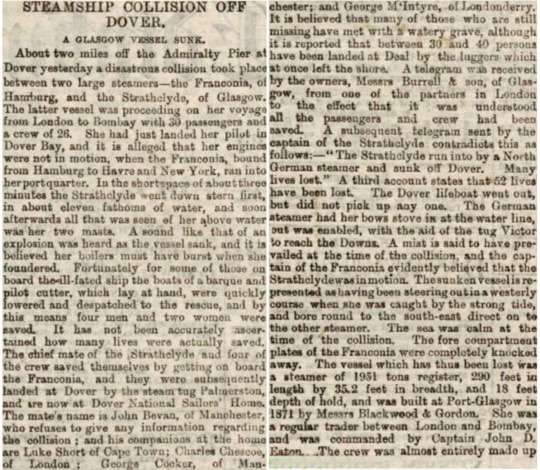
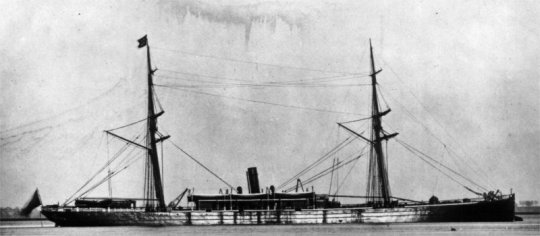

On Thursday, February 17th 1876 SS Strathclyde, built by Blackwood & Gordon, Glasgow and owned by the Burrell shipping group collided with a German ship near Dover.
The Strathclyde left Dover on Thursday, February 17th 1876 and was about two and a half miles from Dover proceeding at nine knots in clear weather. She was overtaken by the German steamship Franconia around 4 to 5pm. Capt Eaton turned his ship to starboard but at the same time the Franconia turned to port and a collision occurred.
The German vessel struck the Strathclyde between her funnel and mainmast, cutting into her to a depth of four feet. The colliding vessel went astern only to rebound and strike a second time making another deep hole abreast of the mainmast The Strathclyde sunk rapidly by the stern. The first lifeboat was lowered with 15 women on board but was swamped by the swell and capsized drowning most of its occupants. A second lifeboat was launched without mishap and managed to save 2 of the drowning people. By this time, the seas were breaking over the vessel as high as the bridge and washing overboard many of those on deck. The captain, 2nd Engineer and a fireman, the last to leave, jumped overboard as she sank Of those on board, 38 were drowned, Capt Eaton was among the survivors.
The subsequent trial, held at the Central Criminal Court in London, of the German master of the Franconia, found the master guilty of manslaughter. On appeal, however, it was discovered that English Law didn’t cover him in English waters, and they had to let him go. This led directly to the adoption by Parliament of the existing International Territorial Waters law, which many other countries already used.
A Leading newspaper of the day reported the story as follows:
THE COLLISION OFF DOVER“
As each fresh disaster is reported, it seems to eclipse its predecessors in strangeness and unaccountability. People wondered naturally enough why the Deutschland should have blundered on to the Kentish Knock, when, she had she kept her right course, she would have been miles away, but there was at least the excuse of dense fog and a powerful current; not so with the calamity of last week. The Franconia, in broad and clear daylight, bore down upon the Strathclyde as though maliciously chasing her for the purpose of running her down, and though the captain of the hapless vessel twice altered her course to get her out of the pursuer’s way, on she came till the fatal crash as heard, and in a few minutes the ship had sunk.
The chief mate and four seamen of the Strathclyde jumped for their lives, and scrambled on board the Franconia, where they allege there seemed to be no order or discipline. Seizing hatchets and knives, they tried to cut away the boats in order to help those they had left behind, but the Franconia steamed on without even throwing a rope, the captain declining to turn back when appealed to. Meantime two of the Strathclyde’s boats were successfully loosed, and each swamped by the rush of water caused by the settling down of the ship.
Twenty-nine of the crew and six of the passengers were picked up by small craft which happened to be at hand, but several of these have since died, and about forty other persons were drowned. Amongst the victims was Mrs. Green, a niece of Mr. Dion Boucicault, whose recent family bereavement by the railway accident at Abbot’s Ripton will be fresh in the memory of our readers. No evidence was offered at the inquest in explanation of the conduct of the Franconia in rushing so wildly on to another vessel, or by neglecting to stand by after the accident occurred.
The Franconia is now detained at London, and the Board of Trade inquiry will, doubtless, elicit some statement from those on board. Meanwhile, it is difficult to imagine what excuse can possibly be urged in extenuation of such apparent inhumanity. Captain Eaton, of the Strathclyde, who stayed by his vessel till the last moment, and who is now lying dangerously ill at Deal, speaks highly of the conduct of all on board, but as she went down in ten minutes, there was not time to launch the boats in safety.
There were twenty-four life-belts and eight life-buoys on board. Several of these were used by the ladies, and in some cases they were the means of saving life. Some of the witnesses at the inquest say that had other boats put out from Dover, more lives might have been saved, and the tug Palmerston is blamed for going to the aid of the Franconia instead of the Strathclyde. It is to be hoped, however, that these instances of apparent inhumanity have been unconsciously exaggerated, or are capable of explanation.”
8 notes
·
View notes
Text
How it feels when you’re trying to reduce your word count in an essay but you accidentally keep finding new arguments

#my paragraph on Boucicault went from 200 words in draft 3 to 600 words in draft 4#poor Wilde is gonna get the boot#academia#essay writing#undergrad
4 notes
·
View notes